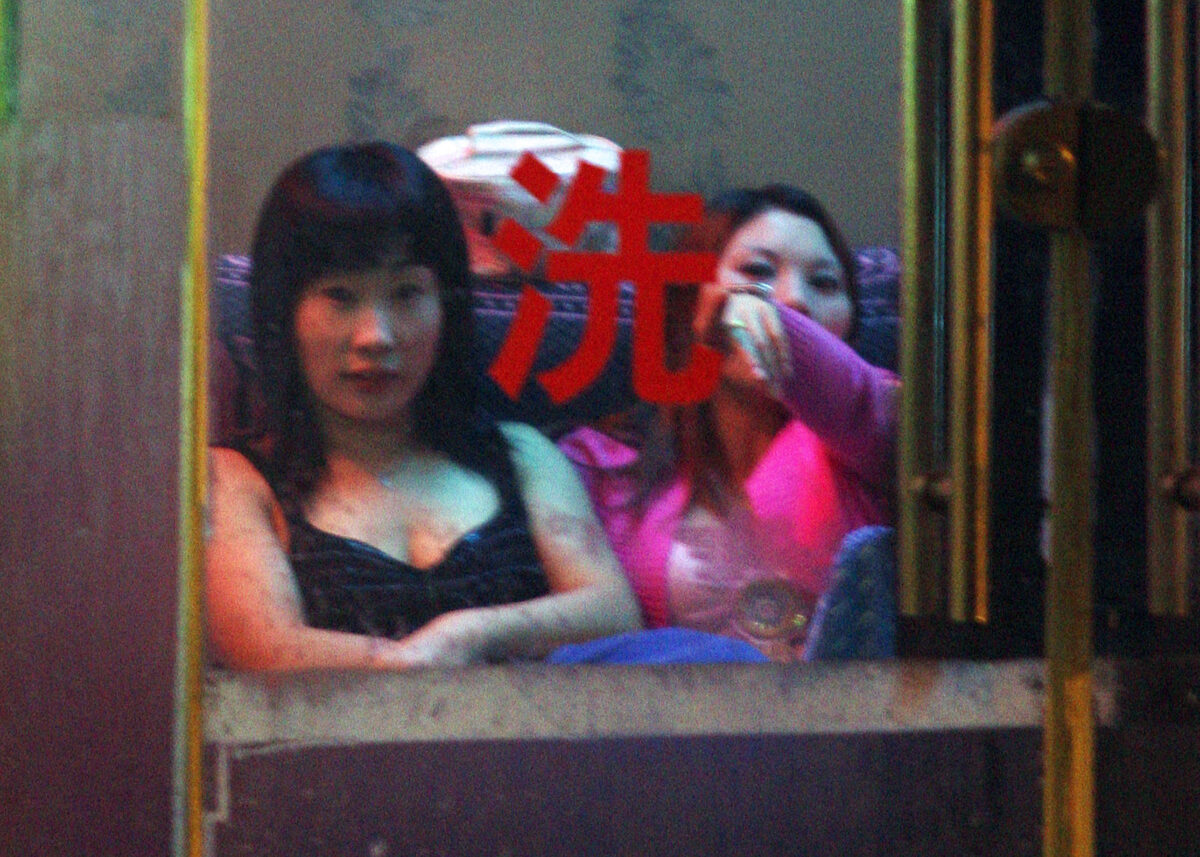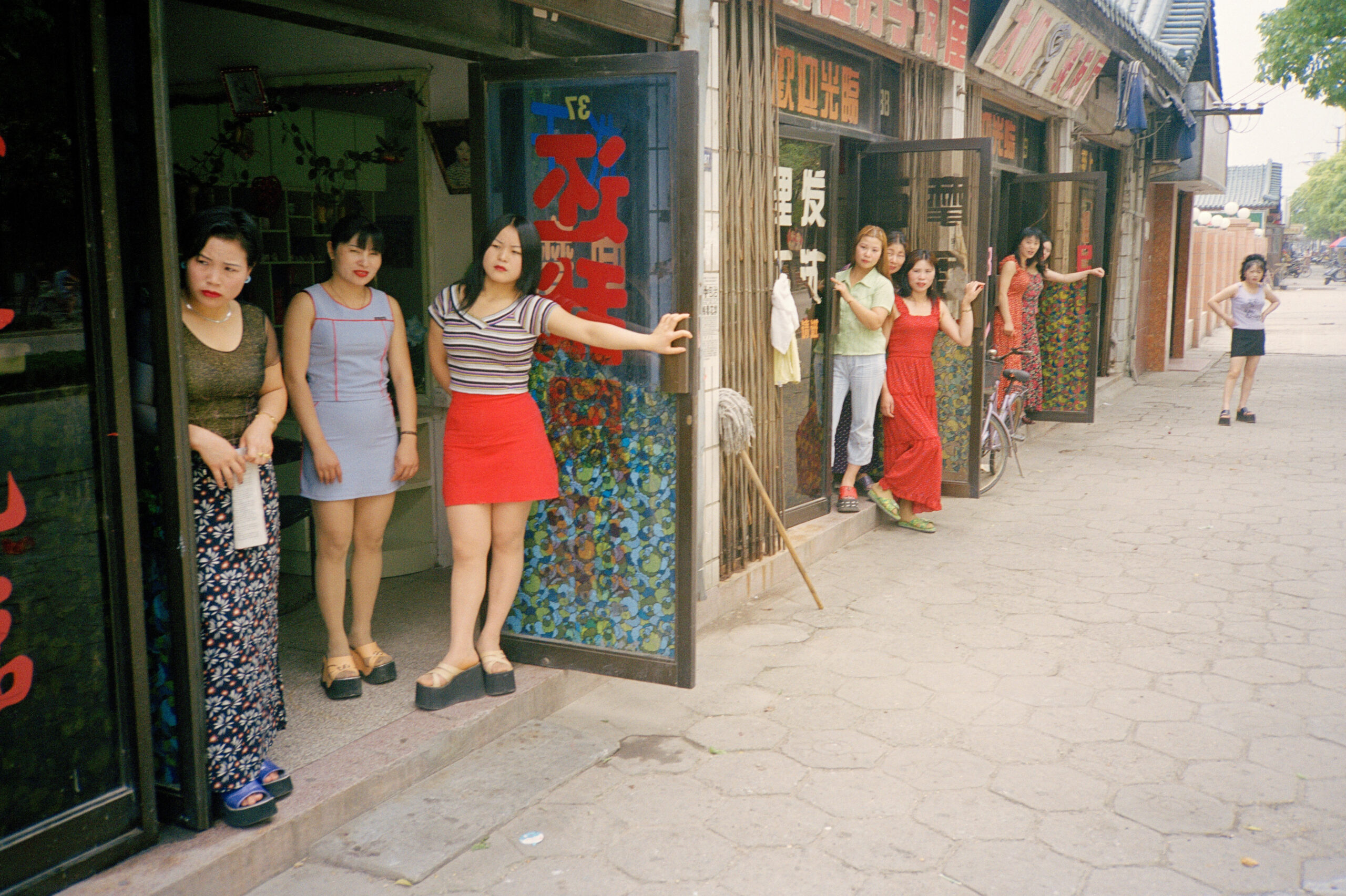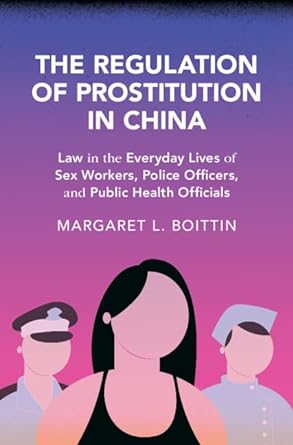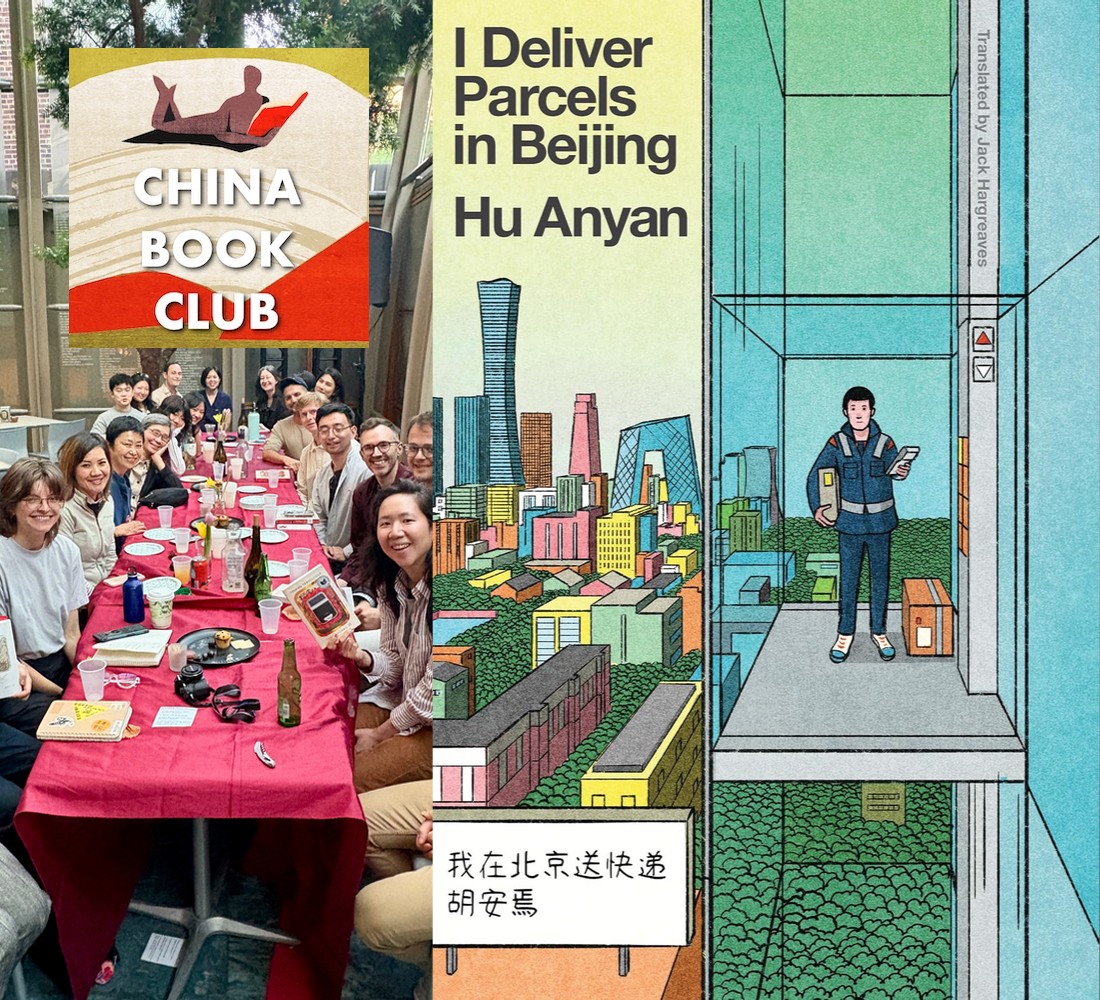Reviewed: The Regulation of Prostitution in China: Law in the Everyday Lives of Sex Workers, Police Officers, and Public Health Officials, by Margaret Boittin (Cambridge University Press, December 2024).
The business of pleasure is often anything but that for those who work it. Yet in Margaret Boittin’s new book on sex work in China, we are shown a rare moment of leisure: about 200 sex workers “milling about” a Beijing park near the salons and KTV parlors they operate out of, “catching up with friends and snacking on grilled corn on the cob, meat skewers and vegetable stew from neighbourhood hawkers.”
The scenic spot is interrupted by a wagonload of police officers chasing an arrest quota, who quickly scatter the sisters. Boittin herself is later approached and threatened, not by the authorities but representatives of the nearby skin trade, who suggest she should scram before they “cream your table into pulp.”
This was Boittin’s introduction to the Chinese underworld of surly madams, hard-bitten hookers, predatory policemen and truculent johns. But her resulting book, The Regulation of Prostitution in China (Cambridge University Press, December 2024) is most interesting when it examines how these women see themselves, rather than the state’s perception of their illicit work.
The first third of the book lays out the fascinating history of prostitution in China. “To wear a green hat” famously signifies cuckoldry in today’s China, but the phrase derives from a Yuan-era directive that men of “debased status” must wear verdant headgear should they wish to pimp their wives or daughters. By the late Qing dynasty, the cities of Kunming, Guiyang and Chengdu had built walled zones for prostitution where police sold entrance tickets, “claimed a percentage of sex workers’ earnings, charged rent for the brothels, coordinated health inspections and provided security.”
After the advent of the People’s Republic in 1949, such Vegas-style “concentrated sin” solutions went out the window. Socialism was “not compatible with commodification of the body.” On a November evening in 1949, public security officials in Beijing shut down over 200 brothels. The following year, a documentary came out about the sex workers’ “transformation” into model socialists. Within two years, the Communist Party was able to reduce the existence of prostitution to an extent that sexually transmitted diseases were effectively eradicated. Unless you were Mao Zedong himself, who enjoyed unfettered orgies with provincial virgins up to his deathbed, the 60s did not swing in China, nor did the 70s.
Whatever scattered embers of the trade remained — such as the occasional discreet “rural arrangement” — were lit anew during the age of reform that followed. By the late 1980s, no one visiting China’s coastal cities could fail to notice the prevalence of young guests in tight miniskirts who would breeze into their hotels’ fancy bars without paying a penny, then sit checking their pagers or sweeping the room for eye contact. Without prostitution, some argued, there would be no prosperity. In the early 1990s a few modernizers within the Party even proposed a Qing-style solution, essentially Special Economic Zones for sex with licensed brothels aimed at overseas investors, but the old guard quashed the idea, wary of any arrangement that might resemble a foreign concession.
The same rules did not apply to Party officials, nor their entrepreneurial allies in the private sector, who from the early 1980s had free rein to indulge their most debauched desires without reproach. The 1990s and beyond saw a surge in sexual proclivity, and officials caught with dozens of mistresses: the Jiangsu Province Construction Bureau head with 140 mistresses including a mother-daughter combo nicknamed “one arrow, two birds”; the balding railway minister Liu Zhijun who, it was rumored, slept with the entire female cast and crew of a Dream of the Red Mansion production he had bankrolled.
By 2010, China Daily, the Party’s official English-language newspaper, estimated that between three and ten million women were engaged in sex work. Unofficial estimates put the number twice as high.
By the late Qing dynasty, the cities of Kunming, Guiyang and Chengdu had built walled zones for prostitution where police sold entrance tickets.
The integration of prostitution into the global market also accelerated a re-introduction of communicable sexual diseases. The first documented mainland case of HIV/AIDS in July 1985 was attributed to “bourgeois liberalization” — Party-speak for the ills of Deng’s reform efforts. The virus was nicknamed “Loving Capitalism Disease” (爱资病, a play on the homophonic Chinese shorthand for AIDS, 艾滋病). By 2007, syphilis had re-emerged as “the most commonly reported communicable disease in Shanghai,” according to The Lancet.
Confronted with the de facto return of a sex economy, the Hu-Wen administration (2002-2012) set out to regulate prostitution in a bumbling way. As Boittin deftly illustrates with interviews and examples, the government simultaneously ignored, condemned, tolerated and taxed the sex trade. As late as 2006, Boittin reports the State Council Legislative Affairs Office acknowledging that “as everyone knows, entertainment venues have a dual nature,” adding that today’s cadres “openly recognize the close ties that exist between [sex] and entertainment, and create rules designed to signal they are eliminating sex work from these places.”

That same year, detailed rules were introduced to regulate businesses such as KTVs, nightclubs and 24-hour bathhouses, insisting they “remain closed between 2 and 8am … doors in private rooms may not have locks [and] be at least partially transparent so that the entire room is visible from the outside [and] dimmable lights systems are forbidden.” Furthermore, KTV hostesses must wear ball gowns “reminiscent of 1980s American prom dresses” or a traditionally demure qipao, while bathhouse employees must don medical scrubs.
Aware that such strict rules might dampen their clients’ ardor, nightlife venues ignored them and local inspectors generally ignored the scofflaws. All the government had to do was tell the venues they couldn’t sell sex, then tax them for the sex they inevitably sold. One former employee of the state-backed All-China Women’s Federation went so far as to tell Elanah Uretsky in her 2016 book Occupational Hazards: Sex, Business, and HIV in Post-Mao China (Stanford University Press): “It’s natural for men to have [affairs] because they can distinguish their feeling from sex,” adding “it’s not a big deal.”
In her fieldwork, Boittin, sometimes accompanied by a research assistant, boldly sallies forth into the demimonde of Beijing, Shanghai, Shenzhen and elsewhere to conduct one-on-one interviews with an array of insiders covering the full gamut of China’s sex industry. She visits KTV clubs, apartment-brothels and the homes of mistresses, interviewing the women therein on their perceptions of self, society and state.
The observations they provide paint a pitiable picture, reflecting society’s view of these dispossessed, often desperate people. “Su Yin was a farmer in Sichuan,” we learn of one woman working a park in Beijing to support two children and a husband back home, a man “who is completely dependent on his wife, failed to live up to expectations and doesn’t want to work.” About 60% of the women Boittin surveys are married, though only 15% live with their husbands. At one point, the author meets the three working occupants of an apartment-brothel in Shenzhen run by Mei Jie, along with her recalcitrant husband Lao Guo:
They have an extremely tense relationship and frequently yell at each other. She accuses him of being a lazy partner who gambles away all her hard-earned income (albeit earned from the sexual labor of others). In Mei Jie’s defence, her husband does seem to spend most of his days sitting in their living room and watching television.
Mei and Lao share a 7 year-old child, Dou Dou, whom Mei tries to shield from their trade by sending him to boarding school, with limited success. When Boittin asks the madam where she can find more subjects to interview, an eager Dou Dou pipes up with a list of helpful suggestions. Later, a client spots the author concealing herself behind a curtain; on being told she is a researcher and not a sex worker, he “sat down and started talking to me about himself, his wife, and his children, as though we were meeting at a dinner party.” Perhaps this is the point: the trade is so ubiquitous in many parts of China, and so normalized despite its illegal status, that admitting to indulgence is no more remarkable than ordering an array of spicy dishes.
All the government had to do was tell KTVs, nightclubs and 24-hour bathhouses that they can’t sell sex, then tax them for the sex they inevitably sold.
Boittin’s interviewees are clear-eyed and calculating about their situation, even if some are fanciful to the point of delusion, with some women long in the game promising themselves just a couple more years before heading back to the family farm for a bucolic retirement. These conversations reveal fascinating differences between how workers of differing status view their profession. Those on the lowest tier, who work on the street or in makeshift brothels, falang (发廊) — salons without scissors — tend to view their work as shameful. They are acutely aware of their precarious position, and are generally disinterested in politics, the police or even health check-ups, viewing their work as generally damaging to society and ill-befitting of legalization.
Middle-tier workers however, such as hostesses in KTV clubs, embrace HIV tests, are willing to call the police on belligerent clients, and tend to show an interest and even trust in the state at large. For them, sex work is illicit but natural, certainly nothing to be ashamed of. “If I like the client, I’ll go with him regardless of money,” says one of Boittin’s interviewees, Jing Ming, “we women have our own needs!” They are aware of the benefits that greater regulation would provide, and stridently in favor of “a safe and comfortable environment” — even demonstrating for their rights, as rare protests for legalization in Shenzhen in 2007 and Wuhan in 2010 proved.

Second wives, meanwhile, don’t consider themselves sex workers at all. The lifestyles of the ernai (二奶) whom Boittin interviews range from lonely Ah-Fang, who receives a few hundred dollars a month to loiter in a Chaozhou apartment waiting for a married businessman to drop by, to cosmopolitan Lucy, 26, who spends her days drifting from salons to Starbucks, waiting for her controlling client to visit for an occasional hook-up and hand over a handsome 10,000 RMB (about $1,500) monthly stipend.
None of these sex workers (or johns) wants anyone back home to find out, considering their family and neighbours to be “feudal” or close-minded. Though tradition holds that villagers should “mock poverty, not prostitutes,” one girl fears being “drowned in spit” should her relatives learn the source of their monthly remittance. “I wish the government would tell everyone that a xiaojie [小姐, little miss] is different from a whore,” complains a homesick Jia Qing. “That way, people in my village wouldn’t call me a whore.”
What’s missing? Despite the breadth of her research, Boittin admits that the book does not cover male prostitution, whether homosexual or female johns and their “duck men” (鸭子), and there are also barely any clients mentioned. The book mainly covers the tail end of the Hu Jintao years up until 2012, and doesn’t document the full effects of Xi Jinping’s prosecutorial crackdowns on the sex trade, which have severely curtailed the once thriving industry.
One suspects that the state’s prohibitory axe has fallen hardest in flagship cities like Beijing, but that tolerance (and taxation) continue in less-trafficked corners of China. The drudgery of open-secret “pink zones” remains likewise unabated. In the former prostitution hub of Donnguan, for example, former KTV monoliths have been converted to nursing homes, and the sex trade has been pushed out to the suburbs. Maybe that is where it belongs in the “civilized” China of the Xi era, that has yet to address the contradictions seething under the surface of a harmonious society. ∎
Header: Sex workers in the Chinese city of Dingshu in Jiangsu Province, China, a center of the pottery industry, 5th May 2000. (Jonathan C. Katzenellenbogen/Getty)

Robert Foyle Hunwick is a writer based in the UK and South America, who lived in China from 2009-2019. His book Everything is Allowed, Nothing is Permitted: A Modern History of Vice, Crime and Corruption in China will be published in 2026.



